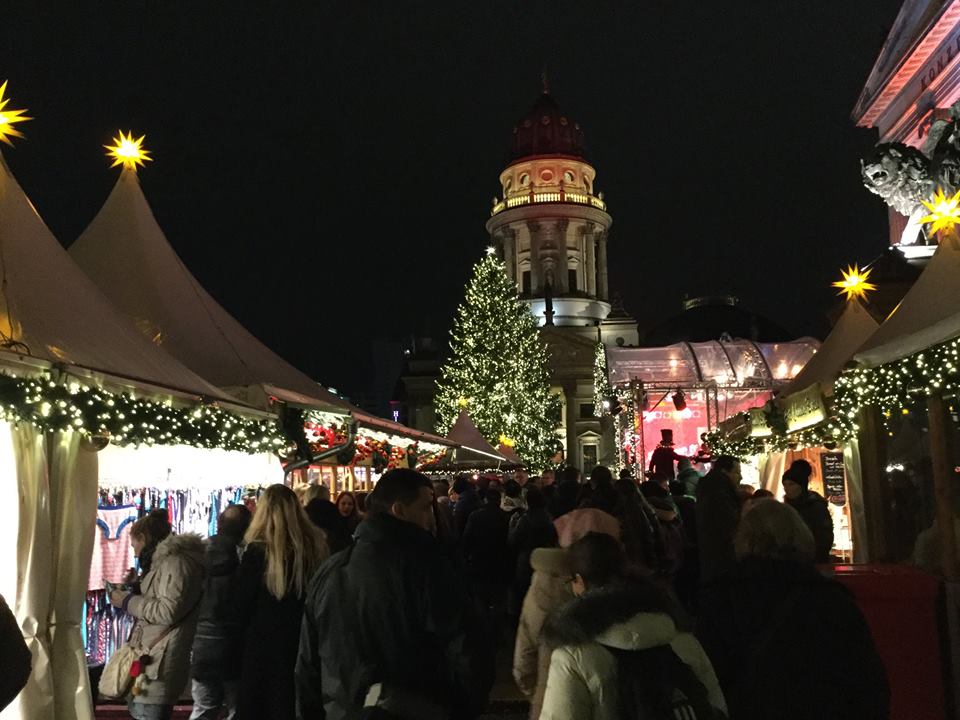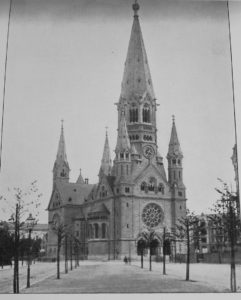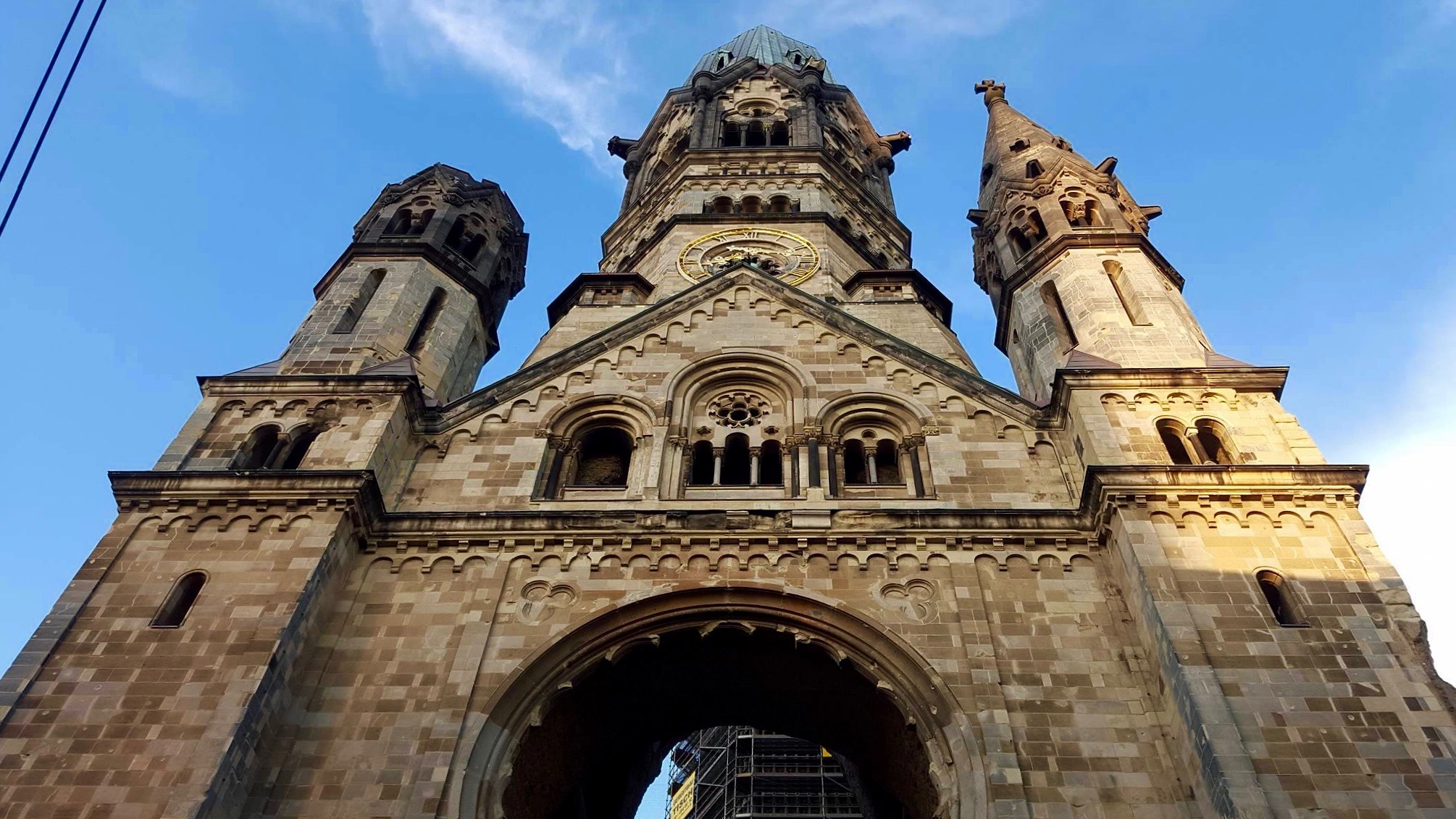In Response to Last Night’s Attacks in Berlin
BERLIN: 20 DEC 2016 (11am). The driver of the truck that killed at least 12 people, and wounded scores more, in Berlin last night, may not have known the symbolism of the space where his attack took place.
Breitscheidplatz, a square near Zoo Station in Berlin, is where the bombed-out Kaiser Wilhelm Memorial Church (Kaiser-Wilhelm-Gedächtniskirche) stands. The 1890 Church was badly bombed in 1943 and has since remained a hollowed shell looming at the end of Kürfurstendamm. The Church was not rebuilt, but rather its ‘hollow tooth’ (hohler Zahn) spire, remained as a reminder, a warning of war. It was at the very base of this church the truck plowed through a crowd of Christmas market visitors.
I was at a Christmas market myself last night with friends––but in the old East at Gendarmenmarkt. These markets can be pretty tacky. But the single quality that can be ascribed to them is ‘gemütlichkeit’, or coziness: a feeling of protectedness, which was broken by yesterday’s attack.
Last night, we drank mulled wine, listened to an accordion orchestra of teenage girls playing Tina Turner, got silly on champagne, made fun of the tawdry wooden handicrafts, then filled our stomachs with Bratwurst and Spätzl. Even the nay-sayer ‘I hate tatty Christmas markets’ types among us found their judgements diluted by hot drinks and greasy food, swallowed like the fried quark donuts covered in icing sugar.

A Christmas market, its miniature confected world, is where you go to break from your end-of-year dramas. The reassuringly festive scene suspends you and protects you from care. Did the driver of the truck know this, and deliberately make it his target? Did the driver know this is a place where people are off guard? That the ‘gemütlichkeit’ a Christmas market produces is the opposite of vigilance? Christmas markets will not be the same here for some time.
Above the scene of the incident is the church. It urges us, in a different way, not to get too ‘gemütlich’, or cozy. I think of a few things, as a historian, when I look at the Kaiser Wilhelm Memorial Church.

I remember how the Church was commission by a demagogue. The hubristic Wilhelm II––a compulsive tree-cutter who almost certainly suffered from ADHD–– dedicated the church to his grandfather, Wilhelm I, the first Emperor of a unified Germany. The bloated neo-Romanesque style of the church, its antiqued mosaics and kitsch family iconography, was a vanity project, the Trump Tower of religious architecture. The Church itself was consecrated on the eve of a public holiday to celebrate the German 1870 victory against the French at Sedan, wedding religion to royalty to war. The place was an obscenity. And the Kaiser Wilhelm Memorial Church, as many have said, was only improved by bombing. Since then, it has stood as a warning, with the official memorial project completed in 1963, in the climate of Vergangenheitsbewältigung, or coming-to-terms with the past, of post-war West Germany.
West Berlin city planners were well aware of the ugly impulses that inspired the original building––militarism, the deification of royal power, the lust for power––and that the ruins symbolically shattered these desires. The question now is how durable is Germany’s vaccination against demagoguery, militarism and intolerance. This Church urges us caution against these toxic ingredients that brought this country to war. They are the lessons to which we increasingly appeal, in critiques of the nationalistic route of current American politics. Germany has its own election in the New Year, and there is a risk, with the increasing popularity of the far-right, populist, Islamophobic, Alternatives for Germany party, that the lessons of this church might be ignored.
As I write this we do not know much yet about the reasons behind the attack. Yet, I am encouraged by the cool, logical, and proportional response of the Berlin authorities. I am impressed by the matter-of-factness and lack of hysteria among my German friends. I like to think the Germans are better protected than many other nationalities against frenzy, precisely because of their terrible experience with nationalism and scapegoating. They know how extremist regimes can profit from emergencies. I am glad to be living right now in a country where damaged churches are left in ruins instead of restored to glory. I just hope that our vigilance will become constructive instead of terrifying.
–by Joseph Pearson


